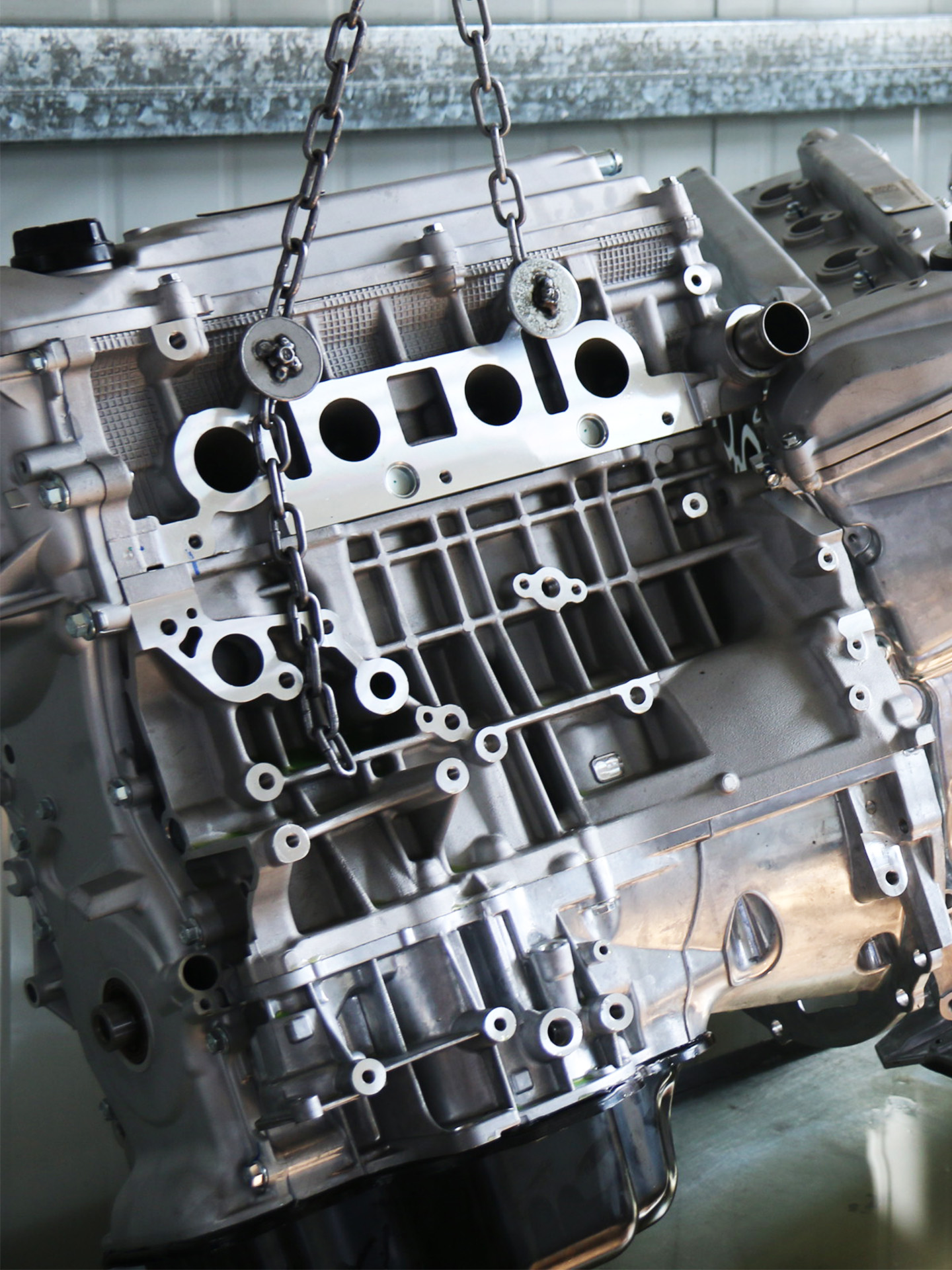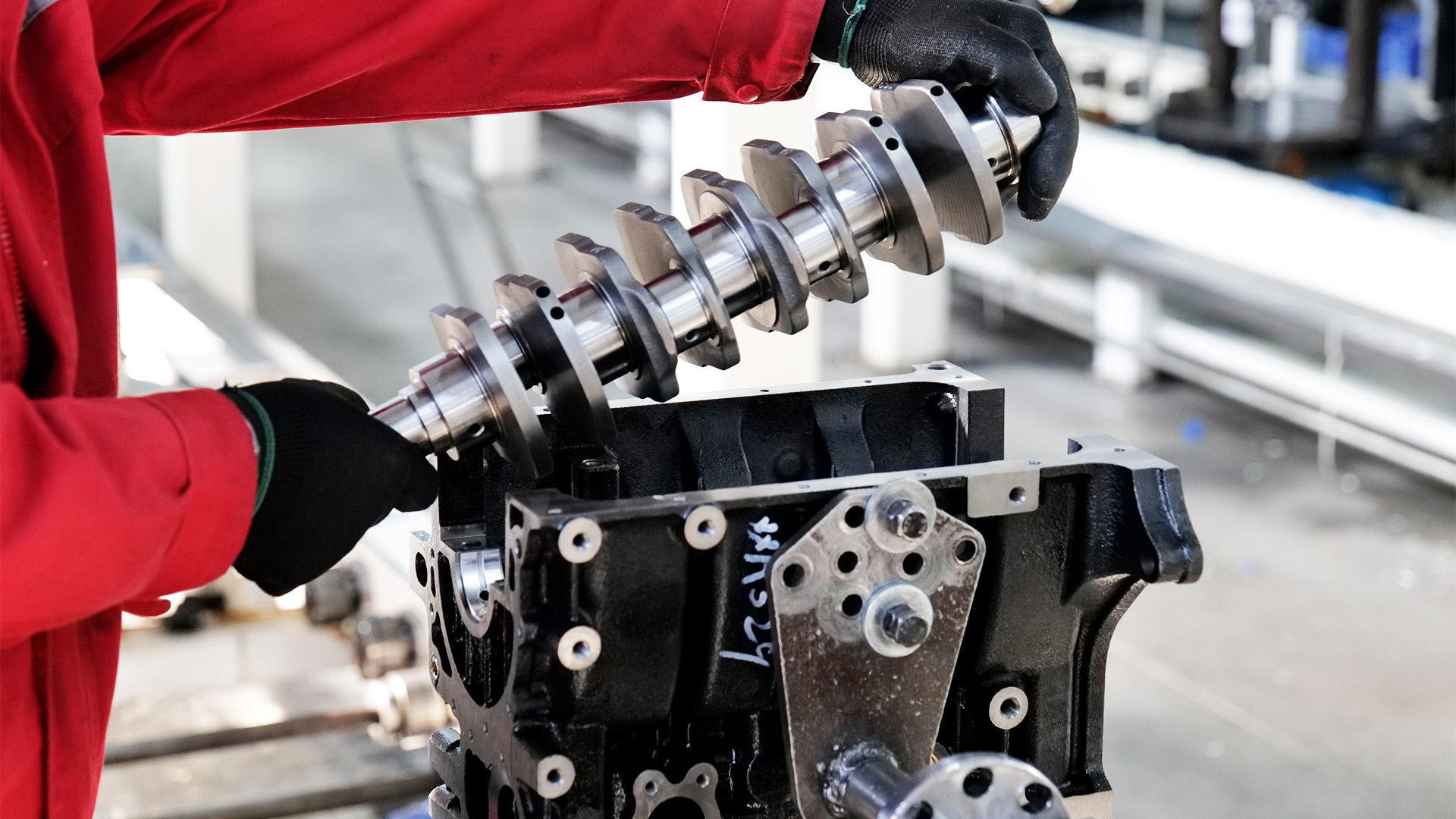Engine oil leaks are a common cause of a malfunctioning vehicle. While it’s easy to ignore an oil droplet under your vehicle, this little ignorance can cause serious engine damage later.
Sometimes, ignored oil leaks pose serious threats, such as fires and complete engine damage, resulting in expensive repairs. Read this guide to understand the causes of oil leaks, symptoms to look out for, and fixing tips.

What is an Engine Oil Leak?
Simply defined, an engine oil leak is a problematic event that happens when the motor oil escapes the pathways it is designated to take within the engine assembly. This mostly happens due to worn-out gaskets, a failing oil pump, damaged oil filter housing, and other damage within the engine.
While it might sound like a small issue, no oil leak is too small to ignore. Engine oil is among the most vital engine components, maintaining an engine’s health. These oils help lubricate the engine and ensure smooth movement of the car engine parts with minimal friction.

Engine oils are also needed to cool down the engine and its components by aiding heat dissipation. These fluids form a protective layer around the engine components, ensuring rust and corrosion resistance, thereby protecting the engine and ensuring its longevity.
If there isn’t enough engine oil in the vehicle, the engine is at a huge risk. Lack of engine oil makes an engine prone to overheating, wear, and failures.

Cautious vehicle owners know that they must never ignore even a minor engine oil leak. Even when you see only a few drops of leaking oil, the issue is bigger than it seems. Slow leaking oil can often result in reduced lubrication and pressure inside the engine, leading to engine damage and expensive repairs.
For example, take the case of a damaged valve cover gasket, costing around $10 to replace. When left untreated, it can lead to oil leaks, resulting in problems like piston damage, overheating, etc. Fixing these bigger issues will now cost you around $1,000 – much more than the $10 you initially had to pay.
Common Symptoms of an Engine Oil Leak

To prevent oil leaks, you first need to be aware of the tell-tale signs, indicating that there is a possibility of a car engine oil leak in your vehicle. Here are some things to watch out for:
Droplets Under The Parked Car
Whenever you take your car out of your driveway or move it from a place where it has been parked for some time, always make sure to check the floor that the vehicle was previously covering. If there’s any oil stain or puddle at the point, it must be taken seriously as it is mostly the first sign of a car oil leak.
Smelling Burnt Oil
If you smell a sharp, bitter, burning odour while driving, and if it remains consistent, it is most likely coming from your engine compartment. The leaking oil drips onto different hot engine components, often resulting in their deformation and an absurd smell of car oil burning.
Blue Smoke From The Exhaust

When the leaking oil goes inside the combustion chamber of your vehicle, it mixes with the fuel and burns along with it. This combined burning releases a cloudy, bluish, or greyish smoke from the exhaust chamber.
This is a serious engine damage warning as the oil bypassing seals and piston rings is extremely hazardous.
Low Oil Warnings And Frequent Oil Top-ups
Be cautious if you get consistent dashboard warning signs for low oil pressure. Moreover, be very cautious if you need to refill the oil more than usual, along with these consistent warning lights.
Ensuring consistent refills might help, but it is not a proper solution. It is best to take measures to tackle oil leaks instead of forcing the engine to work without lubrication.

Engine Overheating
Proper engine oil levels can keep the engine running while ensuring lubrication and heat management. When oil leaks result inless lubrication, the engine components begin to heat up. This often ends in an overheated engine.
Engine overheating is usually an immediate call to action, as it can result in a damaged oil pan gasket, damaged seals, and often leads to complete engine failure.
It is best not to wait any further upon spotting even one of these things, and get the engine checked by professionals for leaks and other issues.
Common Causes of Car Engine Oil Leaks

A leading cause of car engine oil leaks is the damage and wear of gaskets and seals. You need to be vigilant about engine components like the valve cover gasket, cylinder head gasket, and oil pan gasket. None of these should crack due to overheating, over-tightening, or overuse, as it can cause oil leaks.
If the oil filter and drain plug in the engine are loose or damaged, it can also cause the oil to seep out. Make sure that everything in the oil filter housing is properly installed and secured after every oil change. Also, keep an eye on the washers to make sure they aren’t letting any oil drip out.

Sometimes, car engine leaks are also caused by a cracked engine block or oil pan. These cracks often develop as a result of rash driving on the damaged roads, a corroded engine, or accidents. Even the slightest crack can let the oil seep through, gradually worsening the scenario.
Another one of the top causes of oil leaks could behigh oil pressure or poor engine maintenance. The extra pressure of the oil forces the fluid to flow across the seals, ending in leaks. If you’re not taking oil changes seriously and not using the right oil grade for your vehicle, it will ruin the engine, too.

Diagnosing a Car Oil Leak
Diagnosing an engine oil leak or oil pan leak is very easy. Below are the steps you can follow:
Step 1: Parking the Vehicle:Make sure that the car’s engine is turned off and it is parked on a clean, paved road. This will ease your bending to look underneath the vehicle.
Step 2: Looking Under the Vehicle: Check for dark or wet patches underneath the vehicle. Look under the oil pan gasket and drain plug.
Step 3: Inspecting the Engine Bay – If there is a patch of oil, inspect elements under the hood. Using a flashlight, try to see if there’s any spilled oil or dirt around the seals, oil filters, and hoses.
Step 4: Cleaning and Rechecking: Wipe everything and make it clean. Run the engine again for some time and recheck for the spots to be sure of everything.
Step 5: Check Oil Levels: Check if engine oil levels are low, as it is a dangerous sign and must be taken seriously.

Sometimes, you might need to use UV dye or leak detection kits to detect the leaking oil problem. It usually happens when you can’t spot the exact leak source. Adding a colour or dye to engine oil and using UV light for detection can make the simplest leaks visible.
However, in some cases, a professional diagnosis becomes necessary. For example, when the leak persists even after fixing or if the leakage is from a critical engine component like the engine block or head gasket, seeking professional help becomes important.
How to Stop an Engine Oil Leak (Fixes)
Depending on how intense the issue of the leaking oil is, you can either fix it on your own or will need to invest in a professional repair. For smaller and simple leaks, DIY solutions work perfectly. However, if there’s a serious oil leak, it is better to seek expert help.
DIY Fixes

A common DIY solution for leaking oil is to ensure that the drain plug is tightened properly. You might also want to replace the oil filter housing or the filter itself as the first measure to prevent oil leaks.
If you notice oil leaking on a highway and aren’t in a position to carry out immediate fixing, you can try adding an oil stop-leak additive. This is a short-term solution that temporarily slows down the leaking oil problem.
Another DIY repair solution for a car oil leak is to replace the small gaskets or seals if possible. This simple step often stops small leaks. You can also opt for an oil change, or you can find oil leaks on your own to get them fixed quickly.
Professional Fixes
Getting professional help for leaking oil stops the spread of oil inside the engine and helps avoid engine damage. Several factors, like the valve cover gasket leak, often require professional fixing. Getting a professional replacement of the valve cover gasket can easily fix the leaking oil pan gasket.
The oil pan is another element that, if broken, can cause oil leaks. Seeking a professional replacement of the oil pan can often fix the oil leaks.

Professional fixing of the oil leaks also involves replacing or repairing the head gasket to avoid leakage caused by a blown head gasket and other such issues.
Engine Oil Leak Repair Cost Breakdown
Fixing an oil leak can cost you anywhere between $20 and $1,000, depending on the cause and intensity of the underlying problem. If you waste time and let the issue intensify, you’ll have to pay more than someone who gets the issue fixed right when it starts.
For example, repairing or replacing an oil filter or drain plug will cost you around $20–$80 and will stop the leaking oil. However, if you let the issue remain unresolved, the problem can intensify, often leading to issues with the valve cover gasket that will then need around $200–$500 to fix.
If there are issues with the oil pan, you’ll be spending around $300–$800 to fix it. In case of head gasket repair needed, you might have to spend around $1,000+. Usually, your vehicle’s model, the severity of the problem, and the labour rates in your area will define the exact expense.

Here’s a cost breakdown for engine oil leak repairs:
| Repair Type | DIY Cost | Professional Cost |
|---|---|---|
| Oil Filter / Drain Plug Fix | $20 – $30 | $50 – $100 |
| Valve Cover Gasket Replacement | $50 – $200 | $200 – $500 |
| Oil Pan Gasket Replacement | $50 – $70 | $300 – $800 |
| Head Gasket Repair | Can't Be Done At Home | $1,000 – $2,500+ |
Preventing Engine Oil Leaks
Undoubtedly, engine oil leaks are a concerning issue that, if left untreated, can lead to severe engine damage and failure. However, it is not too hard to prevent oil leaks. All you need to ensure is a little care and regular engine maintenance, and you can avoid engine oil leaks easily.
If you ensure regular oil changes and inspections, you will be aware of the cracks and rust before the oil starts leaking through them. This can help prevent oil leaks.
Vehicle owners who ensure they use the correct oil grade according to their vehicle type can also avoid issues with oil pressure, crankshaft seals, and more. This resists oil leaks.

Keeping an eye on oil pressure and oil levels also helps avoid potential leaks. Sometimes, a small oil leak can be figured out with regular inspection of oil levels, helping one take timely action.
Replacing worn-out gaskets and broken crankshaft seals in time can also help one avoid leaks.
FAQ
Can I drive with an oil leak?
Yes, oil leaks don’t hinder the driving abilities of a vehicle. However, it is not at all recommended to drive when the oil is leaking, as it can worsen things and ruin the engine.
Do oil stop-leak additives really work?
Stop leak additives can sometimes slow down small oil leaks, but these aren’t a permanent solution to oil leaks of any kind.
How urgent is it to fix an oil leak?
It is extremely urgent to fix the issues leading to oil leaks because these can quickly escalate and cause engine damage.
Will an oil leak fail a vehicle inspection?
Yes, most vehicle inspections often fail because of engine oil leaks.
Conclusion
While engine oil leaks are a serious issue, acting quickly can save vehicles from engine failures and expensive repairs. Always try to stay vigilant and ensure timely repairs to save your money and vehicle from critical engine problems.
About Us
Source genuine engine oil filters, gaskets, engine valves, engines, and more to fix oil leaks properly. Whether you’re an individual car owner or a mechanic, contact Nanjing Woda Auto Technology Co., Ltd. for bulk purchases of filters, engine parts, and accompanying systems at the best prices today!







